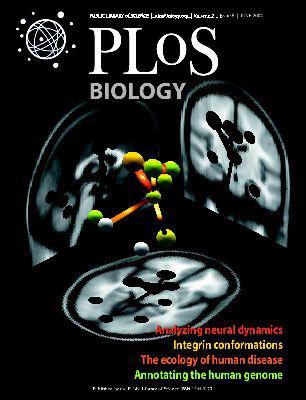Cas9 degradation in human cells using phage anti-CRISPR proteins
IF 7.8
1区 生物学
Q1 BIOCHEMISTRY & MOLECULAR BIOLOGY
引用次数: 0
Abstract
Bacteriophages encode anti-CRISPR (Acr) proteins that inactivate CRISPR-Cas bacterial immune systems, allowing successful invasion, replication, and prophage integration. Acr proteins inhibit CRISPR-Cas systems using a wide variety of mechanisms. AcrIIA1 is encoded by numerous phages and plasmids, binds specifically to the Cas9 HNH domain, and was the first Acr discovered to inhibit SpyCas9. Here, we report the observation of AcrIIA1-induced degradation of SpyCas9 and SauCas9 in human cell culture, the first example of Acr-induced degradation of CRISPR-Cas nucleases in human cells. AcrIIA1-induced degradation of SpyCas9 is abolished by mutations in AcrIIA1 that break a direct physical interaction between the 2 proteins. Targeted Cas9 protein degradation by AcrIIA1 could modulate Cas9 nuclease activity in human therapies. The small size and specificity of AcrIIA1 could be used in a CRISPR-Cas proteolysis-targeting chimera (PROTAC), providing a tool for developing safe and precise gene editing applications.利用噬菌体抗 CRISPR 蛋白在人体细胞中降解 Cas9
噬菌体编码抗crispr (Acr)蛋白,使CRISPR-Cas细菌免疫系统失活,从而成功入侵、复制和整合噬菌体。Acr蛋白通过多种机制抑制CRISPR-Cas系统。AcrIIA1被许多噬菌体和质粒编码,特异结合Cas9 HNH结构域,是第一个被发现抑制SpyCas9的Acr。在这里,我们报道了在人细胞培养中观察到的acria1诱导的SpyCas9和SauCas9的降解,这是acr诱导的CRISPR-Cas核酸酶在人细胞中降解的第一个例子。由于AcrIIA1突变破坏了这两种蛋白之间的直接物理相互作用,从而消除了AcrIIA1诱导的SpyCas9降解。在人类治疗中,靶向性降解Cas9蛋白可调节Cas9核酸酶活性。AcrIIA1的小尺寸和特异性可用于CRISPR-Cas蛋白水解靶向嵌合体(PROTAC),为开发安全和精确的基因编辑应用提供了工具。
本文章由计算机程序翻译,如有差异,请以英文原文为准。
求助全文
约1分钟内获得全文
求助全文
来源期刊

PLoS Biology
生物-生化与分子生物学
CiteScore
14.40
自引率
2.00%
发文量
359
审稿时长
3 months
期刊介绍:
PLOS Biology is an open-access, peer-reviewed general biology journal published by PLOS, a nonprofit organization of scientists and physicians dedicated to making the world's scientific and medical literature freely accessible. The journal publishes new articles online weekly, with issues compiled and published monthly.
ISSN Numbers:
eISSN: 1545-7885
ISSN: 1544-9173
 求助内容:
求助内容: 应助结果提醒方式:
应助结果提醒方式:


